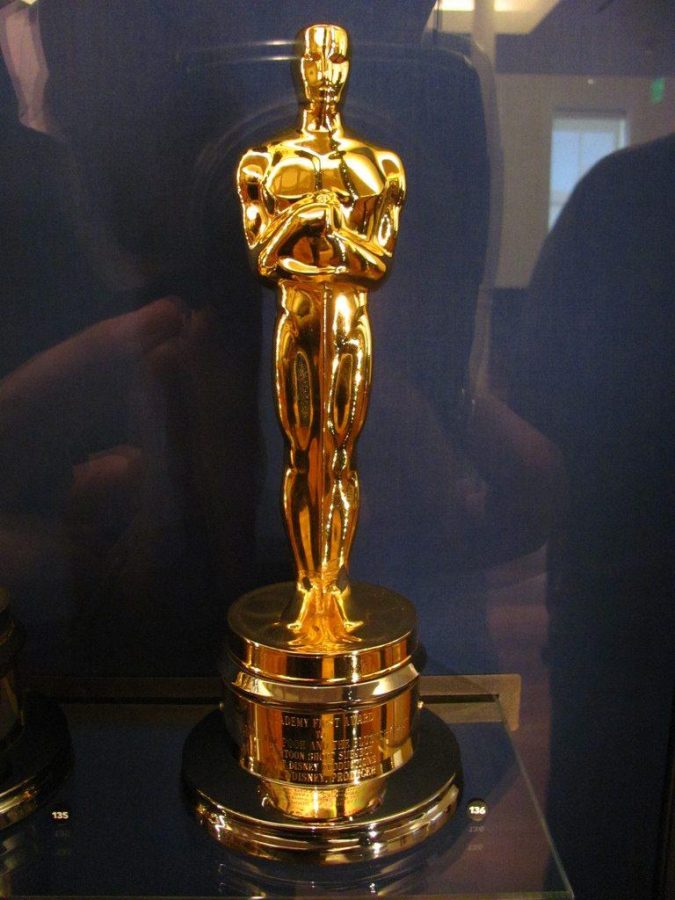No film this year has quite captured the zeitgeist of how it felt to be living in 2017 like “Get Out.” The film was certainly one of the year’s biggest surprises: released unceremoniously in February, “Get Out” turned a small budget into $255 million at the box office. It quickly became clear that this movie was having a serious impact, and the Los Angeles Times referred to it as a “cultural phenomenon.” It defies the conventional wisdom for success as either a prestige pic or a blockbuster: it’s too genre, too Black, too political, too brainy. Now, more than a year later, “Get Out” has staying power — it is still being watched, processed and discussed. It seems likely that it will be an integral part of our social and artistic climate for years to come.
The film unpacks a lot of ideas in its 103-minute runtime, but the central concept is fairly simple. Chris (Daniel Kaluuya) is a Black photographer dating Rose (Allison Williams), a wealthy white woman. Chris and Rose are happy together, but on a weekend visit to her parent’s house, the couple faces uncomfortable truths. Rose’s family, though they consider themselves to be liberals, make loaded comments to Chris that suggest their progressivism may have serious limitations. At first, Chris is annoyed although remains resigned, and as time passes he begins to detect that Rose’s family is keeping strange secrets. Chris begins to piece together the nightmarish truth as the family’s behavior becomes increasingly alarming.
The less you know about “Get Out” beyond its central premise, the better off you are. If you have not seen it yet, and have managed to avoid spoilers, go watch it without any knowledge of the film. This film fits into the category of horror, but it avoids any predictable genre beats, and every turn of the plot is genuinely surprising. The film does not use jump scares or excessive gore as a crutch, but instead the direction maintains a constant air of dread. The results are deeply unsettling.
“Get Out” is as intellectually satisfying as it is viscerally engaging. It’s an ingeniously constructed film, and immediately after finishing it I wanted to see it again, to see exactly how everything fit together. Not any part of the film is wasted — even seemingly innocuous moments carry new meaning after the film’s final twists are revealed. “Get Out” is packed with allegory and metaphors, but the film carries a deft enough touch that each new revelation feels both shocking and logical.
“Get Out” is directed and written by Jordan Peele, who gained fame as an actor and writer on the beloved sketch comedy series “Key and Peele” (this show gifted us with numerous perfect sketches, such as these). Though “Get Out” is in many ways a departure from his past work, Peele’s writing maintains a sort of comedic sensibility, and not just because the film’s dialogue is sharply funny. “Get Out,” like any good sketch comedy, is built around surprising punchlines, stretching premises to their most dramatic extremes and finding truth and humanity against absurd scenarios. Part of Peele’s inventiveness is his synthesis of several genres’ most pleasurable qualities. By the end, you might not be sure if this is a scary comedy, a funny horror film, a socially aware thriller or an action-packed satire.
While “Get Out” would be a notable achievement in any time period, the film takes on increasing relevance under the shadow of Trump’s presidency. The film’s paranoia feels prescient and justified, acknowledging that white supremacy is more entangled with our nation’s origins than most of us would like to admit. Peele’s screenplay is equally sharp as a piece of art and as a piece of social commentary — this never feels like a lecture on race in America, even as its observations are complex and astute. Peele articulates how black bodies are both sought after and disrespected, objectified and violated. For white audiences, the film is sure to provoke more than a few cringe-inducing realizations of the patronizing ways that many privileged people talk about race. That a mainstream film even acknowledges these issues, let alone tackles them with the insight and bravery that “Get Out” does, feels like a minor miracle.
There are still details of the film’s many metaphors I have yet to fully compartmentalize and levels to the film’s satire that I have yet to fully sink in. This film is rewarding to watch and discuss, and it holds up whether you pause to analyze or let it wash over you completely. Peele’s debut is remarkably assured, and like Greta Gerwig, he is a reminder that the next generation of great filmmakers will not be monopolized by straight white guys. This is good news, as “Get Out” is an endlessly creative and provocative film and a necessary antidote to our nation’s political “sunken place.”


